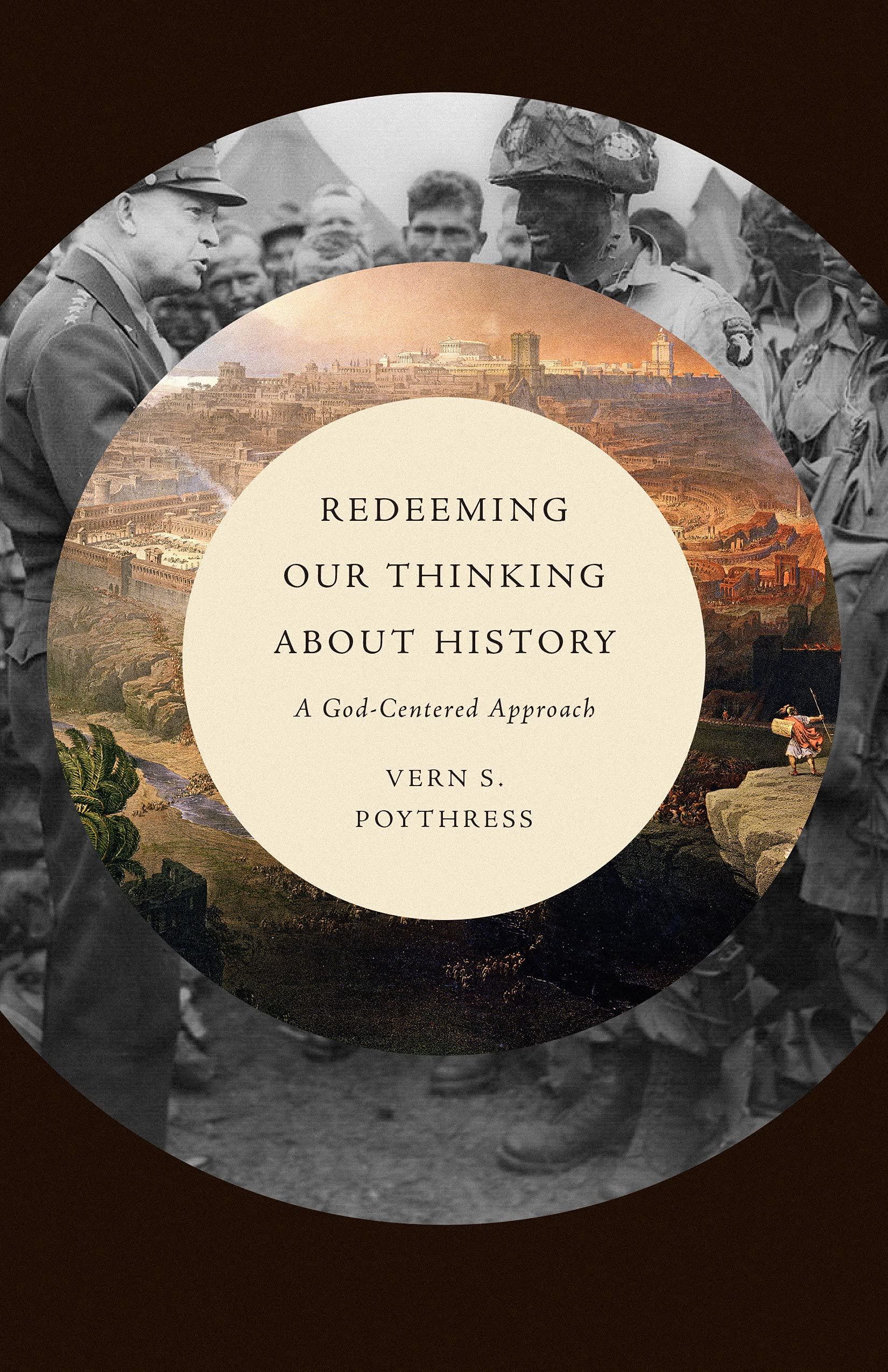A Brief Book Summary from Books At a Glance
by Steve West
About the Author
Vern Poythress (PhD, Harvard University; ThD, University of Stellenbosch) is distinguished professor of New Testament and biblical interpretation at Westminster Seminary, Philadelphia. He is the author of numerous books and articles.
Table of Contents
1 The Importance of History
PART 1: What We Need In Order to Analyze History
Essential Resources That God Supplies
2 Experiencing History
3 Foundations for Historical Analysis
4 Spiritual Antithesis: Darkness and Light
5 Reductionistic Historical Analysis
6 Understanding People
7 Understanding Historical Causes
8 Miracles
PART 2: History in the Bible
How the Bible Goes about Writing History
9 Unity in Biblical History
10 Diversity in Biblical History
11 The Uniqueness of the Bible
PART 3: Understanding God’s Purpose in History
Divine Purposes—and Our Limitations—in the Study of History
12 God in Biblical History
13 Cautions in Understanding Divine Purposes
14 The Value of Recognizing Divine Purposes
15 Biblical Principles Guiding Historical Understanding
16 Academic Historical Analysis
17 Pressure toward Religious “Neutrality”
18 Applying Principles from the Book of Revelation
PART 4: What Does History Writing Look Like?
Examples of Challenges in Writing about Particular Periods
19 Christianity in the Roman Empire
20 Interpreting the Reformation and Beyond
21 Histories of Other Civilizations
PART 5: Alternative Versions of How to Think About History
Competing Ways of Doing History among Christians
22 Five Versions of Historiography
23 Evaluating Providentialism
24 Other Versions of Christian Historiography
25 Perspectives on Historiography
26 Further Reflections on Providentialism
Appendix: Providence according to Mark Noll
Summary
Introduction: The Importance of History
Many groups in contemporary Western culture ignore or dismiss history. For many, what’s new is considered better by definition, and progress is interpreted as leaving the past behind. The Bible—God’s Word—has a very different view of the past. God commanded his people to remember the past, learn from it, and act accordingly. The Old Testament is filled with references to the past, and exhortations to learn about God from it. Likewise, the New Testament frequently appeals to redemptive history, and Paul focused the church’s attention on the historical events of Christ’s life, death, and resurrection. Salvation cannot be reduced to personal psychology or spirituality: it is anchored in Christ’s historical work. The author of Hebrews tells his readers that biblical history provides them with numerous examples for imitation and the learning of life-lessons. Pastors are to teach this history to their congregations, and parents to their children. Reading biblical history expands our understanding of God, the person and work of Christ, and humanity. Scripture shows us both positive and negative examples, and we learn from seeing the consequences of both folly and wisdom. The more we see of God’s work in the past, the more we can praise him. Although the history recorded in Scripture is primary, we can also learn from history outside of the Bible. Historians are fallible, so we need to be discerning when we read their work, but we can still learn about God and humanity through history outside of the Bible.
Part 1: What We Need in Order to Analyze History
We need to submit to the lordship of Christ in everything, including how we think about history. God is the primary actor in history, and he is working out his plan for the world. Scripture records God’s work of creation, and Adam’s fall into sin. After that, the focus is on God’s work of redemption. When we think about events we have experienced, we have to acknowledge that we know very, very little of all that was happening. When we interact with other people, we know only the smallest fraction of what is going on inside of their head, their motives, etc. We are simply unable to exhaustively know even the smallest part of history, but God knows everything fully and comprehensively. When we look at large-scale events (like an election or a war), the number of personal details involved is enormous. As a result, historians need to be highly selective in the persons and events they highlight. History can refer to actual events, but also to the human discipline of studying them. “If we want to understand history, we inevitably must bring together three aspects: (1) events, (2) people, and (3) meanings.” Historians are people, and every person has their own unique history and personal orientation that influences their interests and interpretations.
The three aspects of events, people, and meanings depend on each other, and ultimately depend on God. Meaning depends on the original events, as well as on people who understand and communicate. People cannot experience the world apart from events and meanings. Thinking about the past is a personal action. The harmony between these three aspects is created by God. He controls the events of history and the peoples of the earth, and in doing so controls the meaning of all that occurs. People are responsible for all that they do, but even evil deeds do not fall outside of God’s sovereign control. Historians speak the truth when they express aspects of God’s understanding of the meaning of an event. The three aspects of history align with Frame’s triperspectivalism with its normative, situational, and existential categories. As with the Trinity, history has unity and diversity. Historical events are all unique, but are also fundamentally united and can be classified in patterns. Historical description must take into account both similarities and dissimilarities, unity and diversity. The ultimate reality of unity and diversity is the Trinity, and so the Trinity is the ultimate foundation for coherence in history. . . .
[To continue reading this summary, please see below....]The remainder of this article is premium content. Become a member to continue reading.
Already have an account? Sign In
